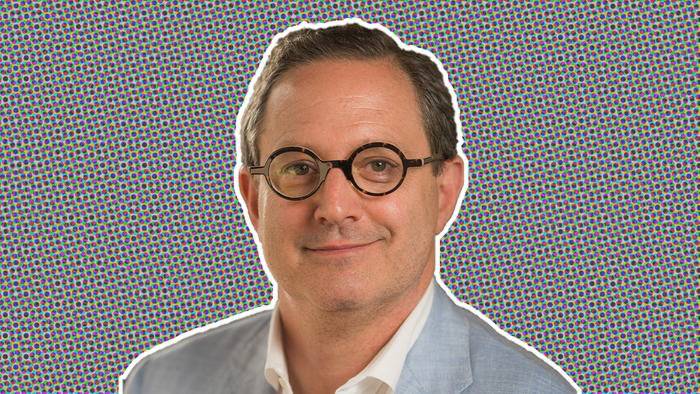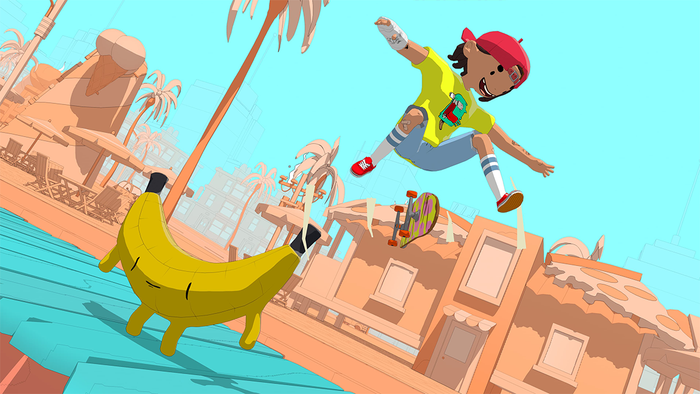Mitch Kapor Talks Second Life Supremacy
Reporting from the Second Life Community Convention at the weekend, Gamasutra takes a look at the keynote speech of EFF and Lotus co-founder Mitch Kapor, as he argues that the virtual world, which integrates game-like play and social interaction, i

The last 12 months have seen the virtual world of Second Life leap into the media spotlight, with a cover story in Business Week, a feature in Popular Science, and any number of other appearances in magazines, newspapers, radio and television. But does the reality of this virtual reality live up to the hype? To the skeptics, many of whom have seen 3D platforms like VRML come and go leaving nothing but virtual corpses in their wake, Second Life is little more than the latest passing fad. But for the 400-plus Second Life "residents" who showed up for the second annual Second Life Community Convention in San Francisco, their world is nothing less than a revolution in Internet technologies. They and the world's half million other users heard their viewpoint backed up at the convention by Mitch Kapor, who came on the technology scene at a time when it looked like the personal computer itself might never catch on. A Bold Vision Chairman of the board of Linden Research Inc., the company behind Second Life, Kapor gave an engaging keynote speech to open the convention that touched on everything from his experience as the creator of Lotus 1-2-3 (an application often credited with helping make PCs ubiquitous) to the early days of Second Life, the vast potential he sees in the platform, and the responsibilities that fall to SL residents as they build their world going forward. "It is very difficult to remember a time, even if you were alive then, when people did not have huge amounts of computing power at their fingertips, but I can assure you that that was an extraodinarily radical idea," Kapor said. "The same thing now goes for virtual worlds. It's still a very radical idea that these are somehow going to be important and mainstream, and it's still only a very small fraction of the world's population that understands and appreciates that." "Any time you're involved with something radically new and distruptive, one of the major characteristics is going to be skepticism. The skepticism about the future of the PC was intense," Kapor recalled. The same could be said for the Internet: "Back then the idea that there would be a common information facility that you could plug into was just absurd. Nobody serious thought that that was going to happen, not a single person." Kapor hears the same kind of skepticism these days about Second Life. To counter it, he points out two things: the "enormous explosion" of content creation that is already happening in Second Life, and the steadily rising profile Second Life is gaining in the eyes of the general public. Watch For Macromyopia! Even so, Kapor warned the crowd against "macromyopia," the tendency of aficionados to overestimate the short-term impact of a technology and underestimate the long-term effects. "Certain situations that may be problematic in the short term may well take longer than anyone would like to fully resolve," Kapor said. "On the other hand, it's very diffcult to fully grasp and imagine what the long-term impact of Second Life and things like it are going to be. We have to stretch to think about that." Though Kapor has been a steadfast supporter of Linden Lab founder and CEO Philip Rosedale since even before Second Life got underway, he admits that he himself is still experiencing revelations about the potential of the platform. "I had an unexpected spiritual experience two days ago. I was watching on YouTube the video of the Suzanne Vega performance [in Second Life]. What I'm seeing is her avatar, she's playing guitar and there's a live performance going on, I'm hearing it on my headphones because the audio is being streamed, but I'm watching a director cutting between multiple camera angles of a live concert." "I'm watching a kind of television broadcast of an event that is simultaneously real and virtual. And all of a sudden my sense of what was real expanded a million-fold. A fundamental shift of my awareness happened. Where this is going is toward the full interpenetration of the terrestrial reality made up out of atoms, and virtual realities made up out of bits. It's not a seperate thing, it's not a cartoon, it's not a game, it's a much, much, much, much unimaginably larger reality, and that is powerful." Economy, Society, Maturity Among the challenges on the road ahead for Linden Lab, according to Kapor, are basic problems like making sure performance is reliable, and more complex ones like managing the virtual world's economy, which operates on Linden dollars, which are freely convertible to currencies supported by the governments of real world. A more long-range prospect is the management of Second Life's society itself. "There need to be the equivalent of rule-of-law conditions, so that people can come and do whatever their thing is without unwarranted interference," Kapor said. "My vision is that over time the governance of Second Life passes much more to residents, and to structures run and managed by residents and groups of residents. That's a large challenge to figure out how to do that, nobody has ever done anything remotely like that that I'm aware of, but the future is going to be in a kind of world which is of, by, and for the residents of it, and it will become increasingly indistinguishable from terrestrial reality." Conclusion Kapor closed his talk by charging the audience with a joyful task, though one that was not without its pitfalls: "I think you are in a blessed position," he told the assembled. "The opportunity to participate in the creation of a new world is really a rare one, and so I hope you cherish it. You'll face challenges. In every disruptive technology I've seen, there has always been a dynamic in which the early adopters begin to be pushed aside as the whatever-it-is begins to become mainstream. There will be tensions as the frontier is civilized, on all sides, of people who like it the way it is, and people who want it to be what it might become." "But the most important thing I want to say and leave you with is that with the privilege of creating a new world or new worlds, I believe, comes responsibility. The responsibility is to make that new world a better place. There is no one vision or value of what that better place will be, but in a new world free of a lot of the constraints we're used to, my hope is that Second Life will continue to be a world that is more inclusive than the terrestrial world, and will enable groups of people that are marginalized in the real world to be first-class citizens and residents. I hope you would think carefully about what a better world means to you, and as you go about Second Life you do things, build things, and interact in ways that further your own vision of that better world." [Mark Wallace is the editor of 3pointD.com, a widely read blog covering virtual worlds. His freelance journalism on technology and culture has appeared in Wired, The New York Times, PC Gamer (UK) and many other publications.]
Read more about:
2006About the Author(s)
You May Also Like







